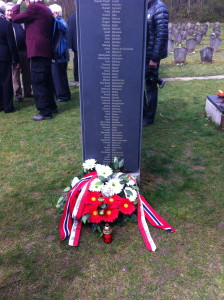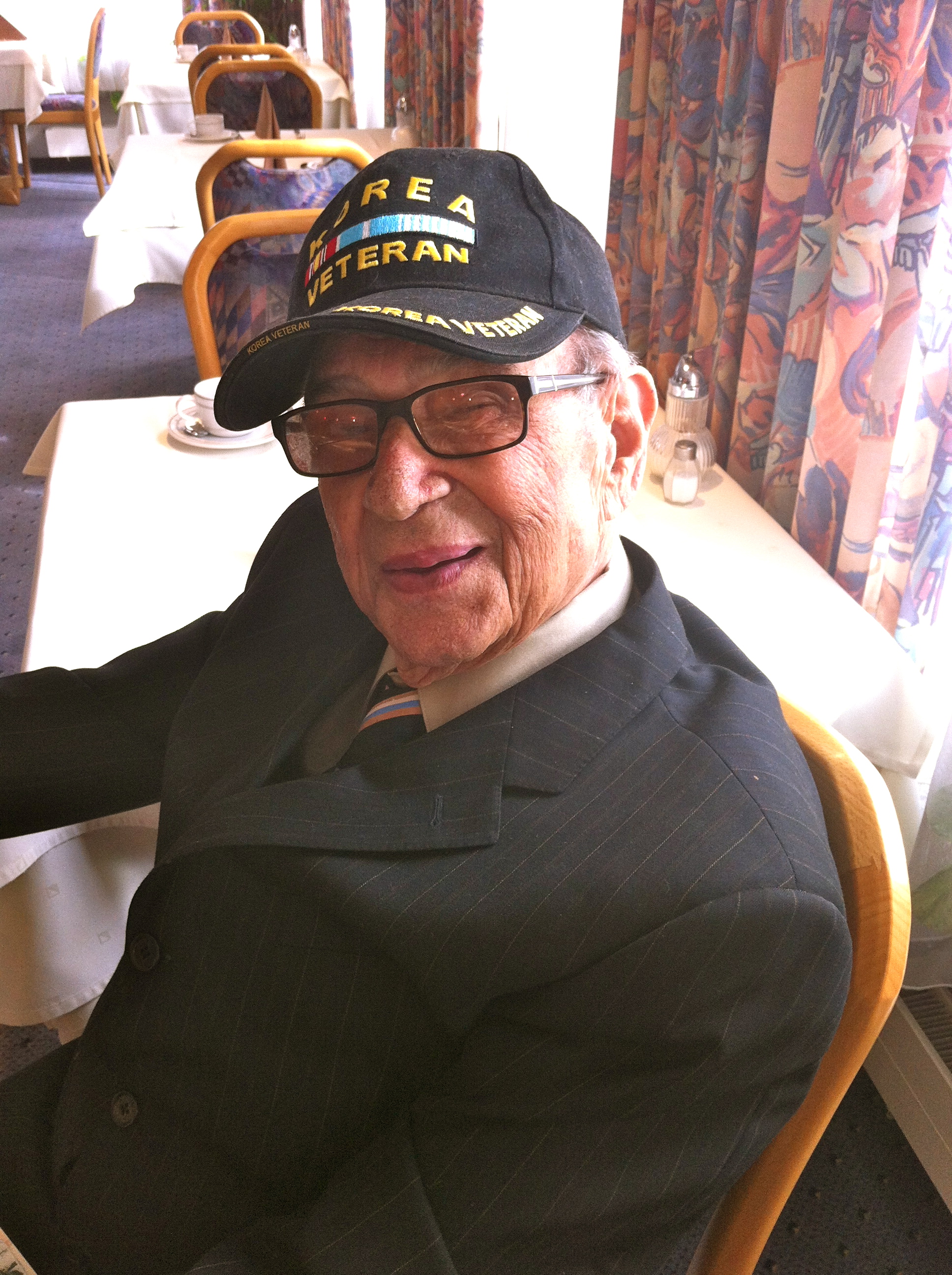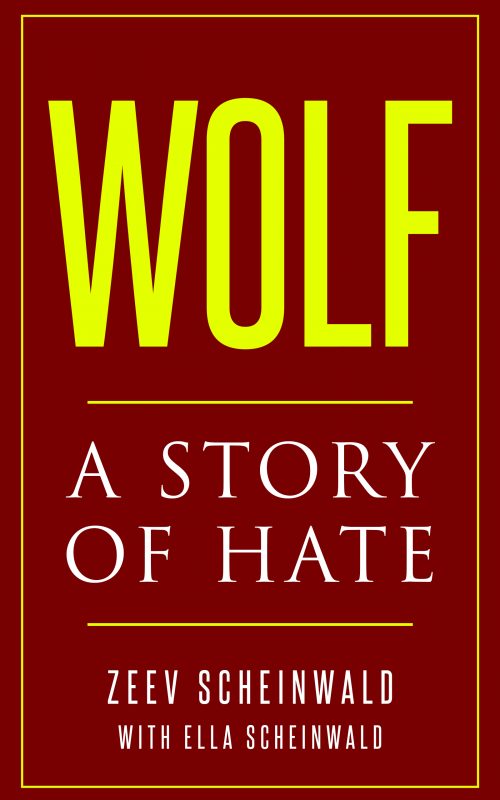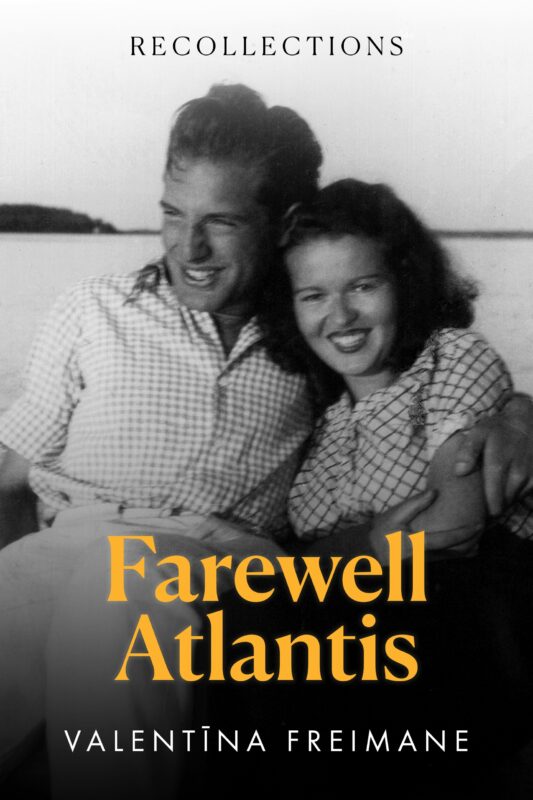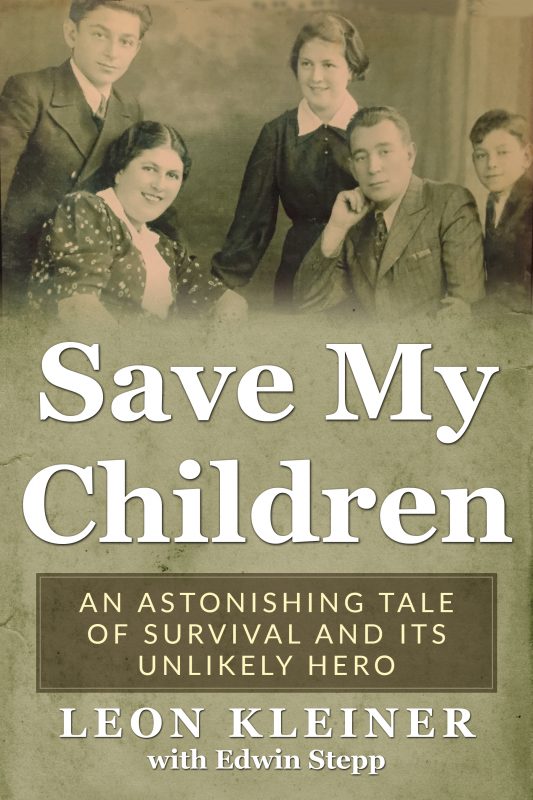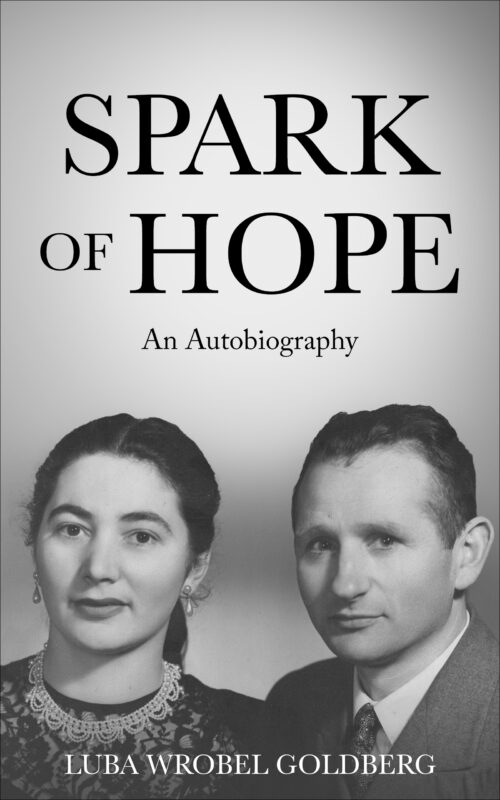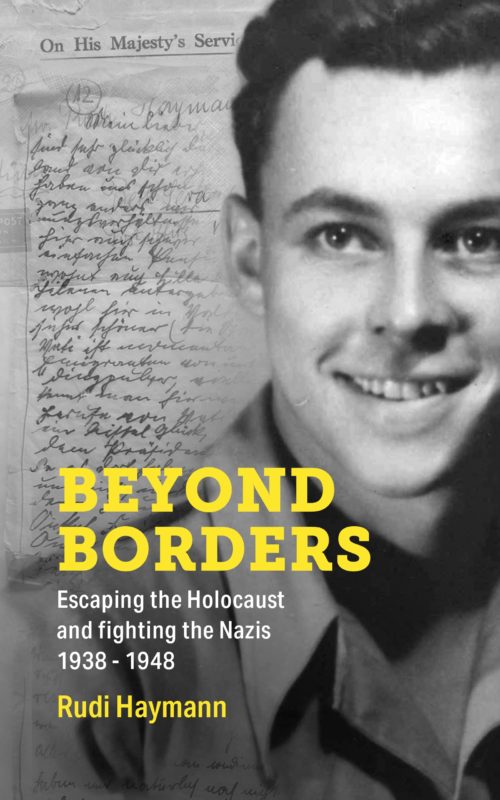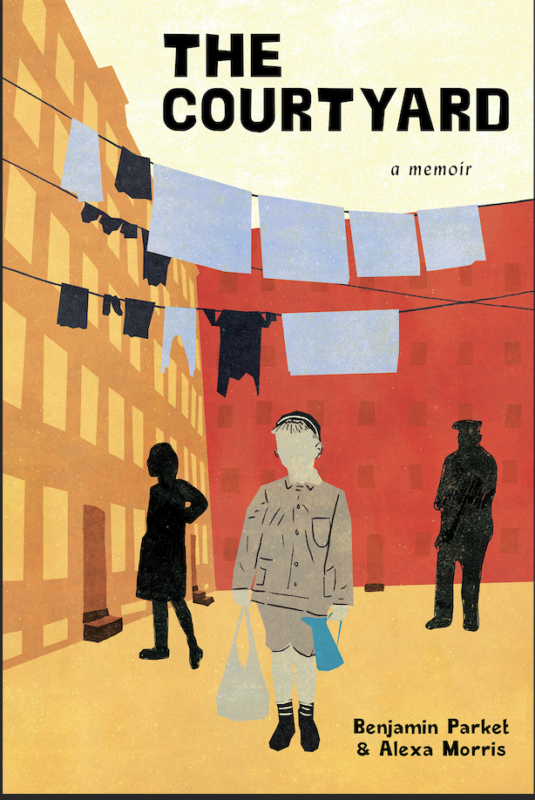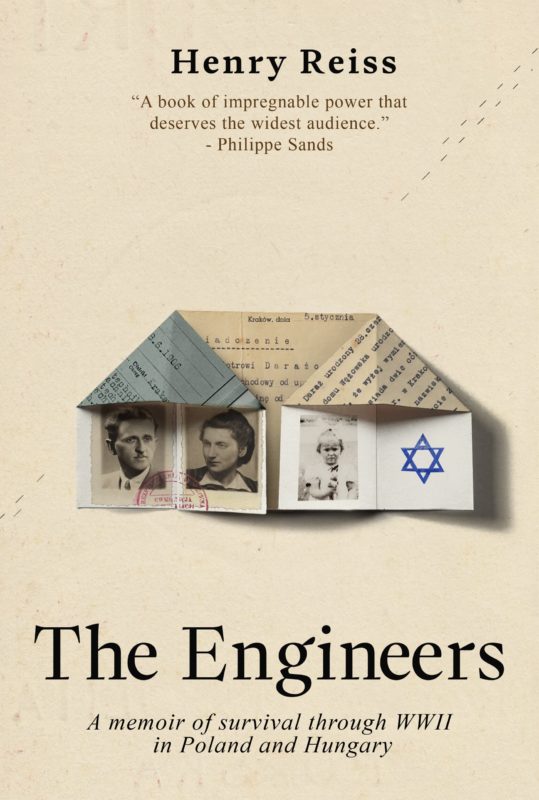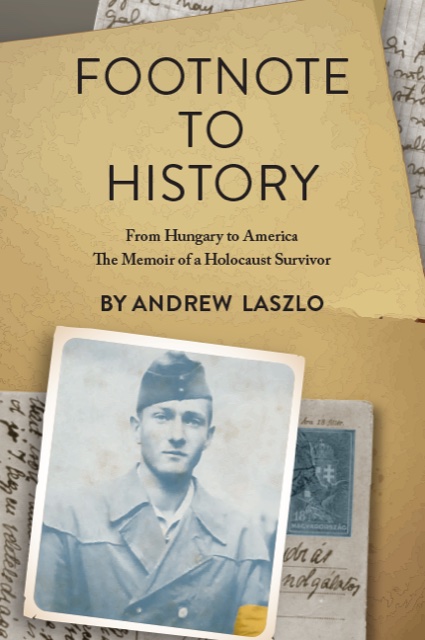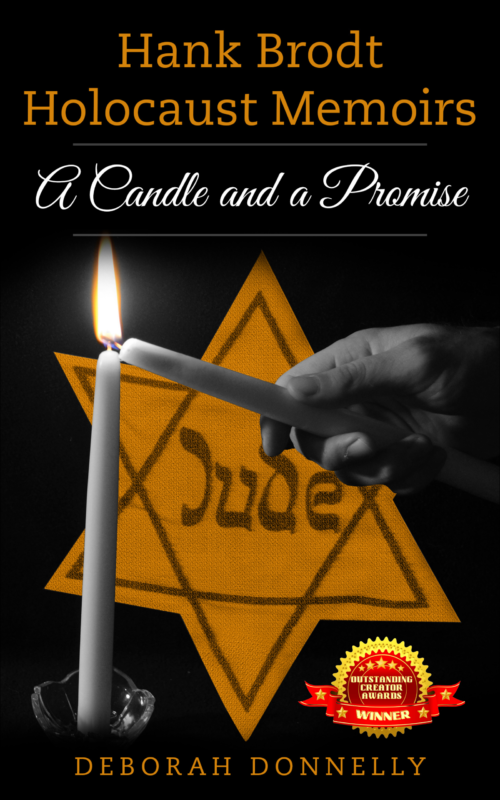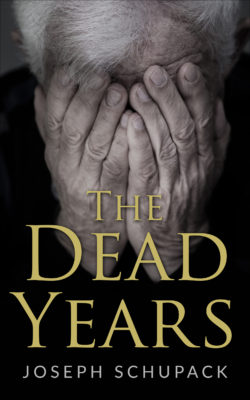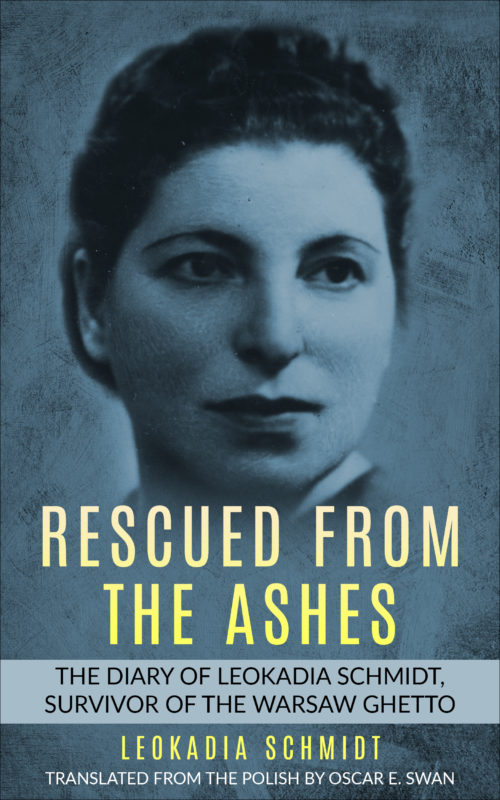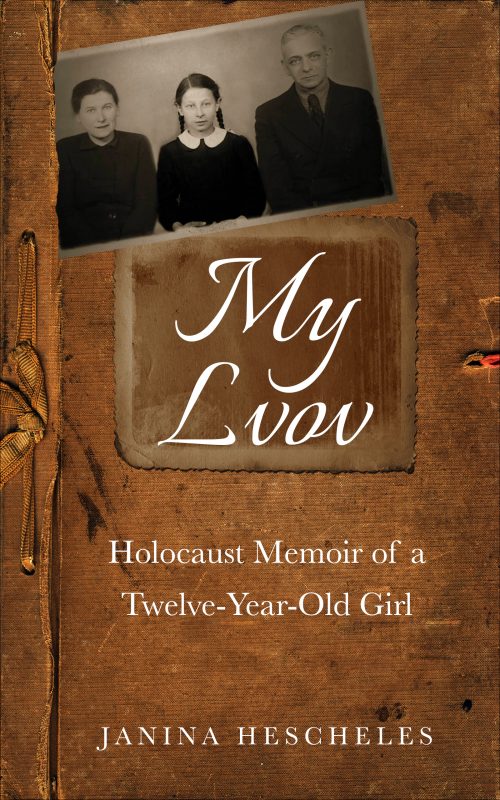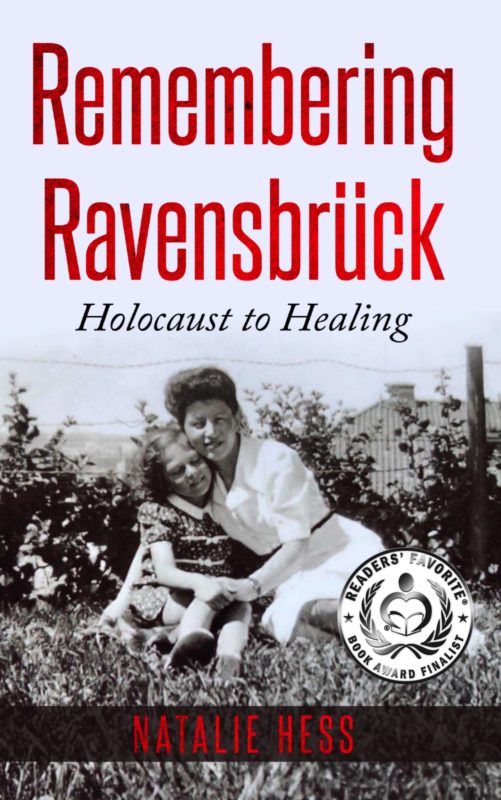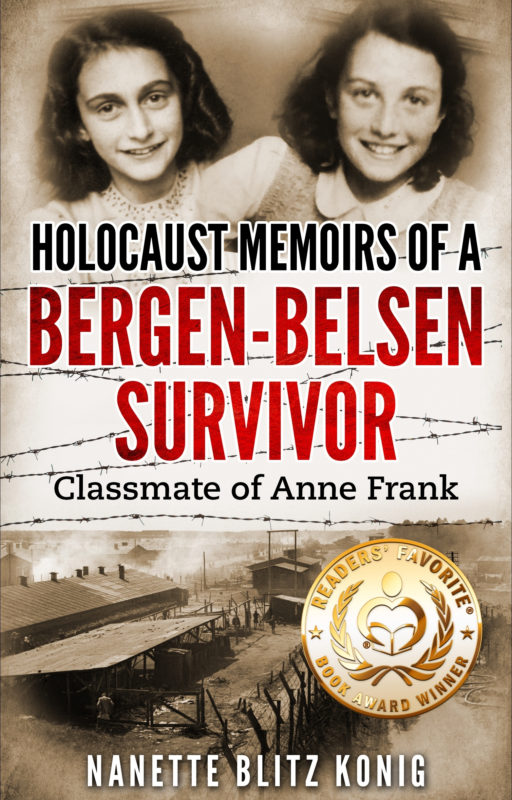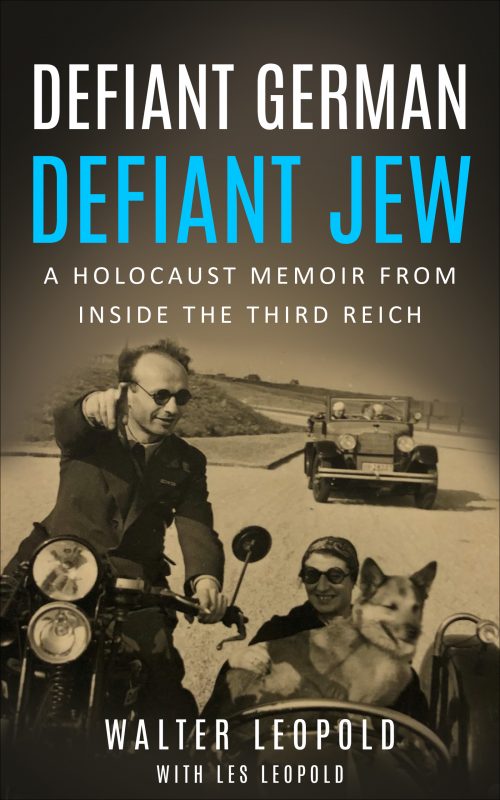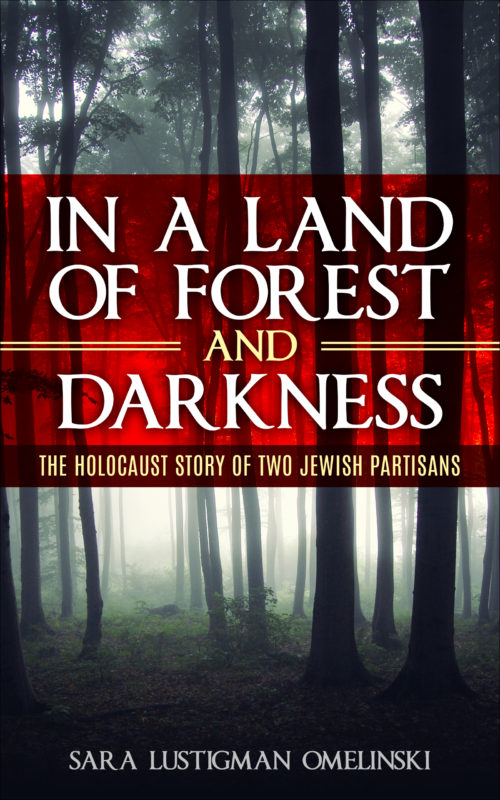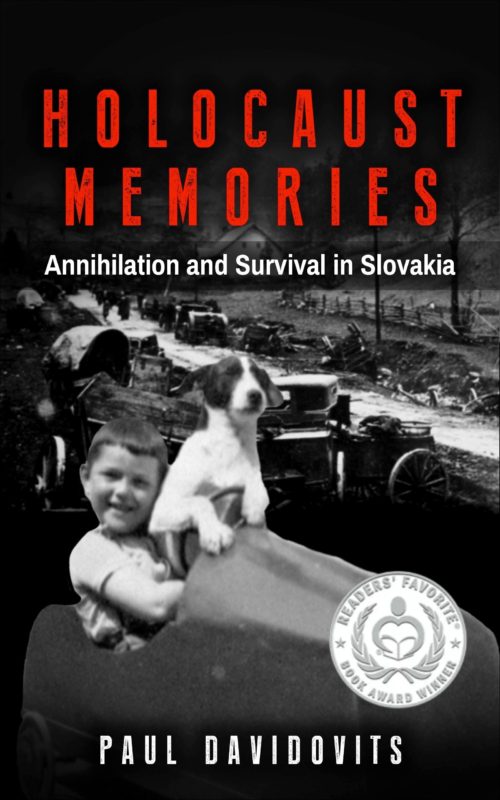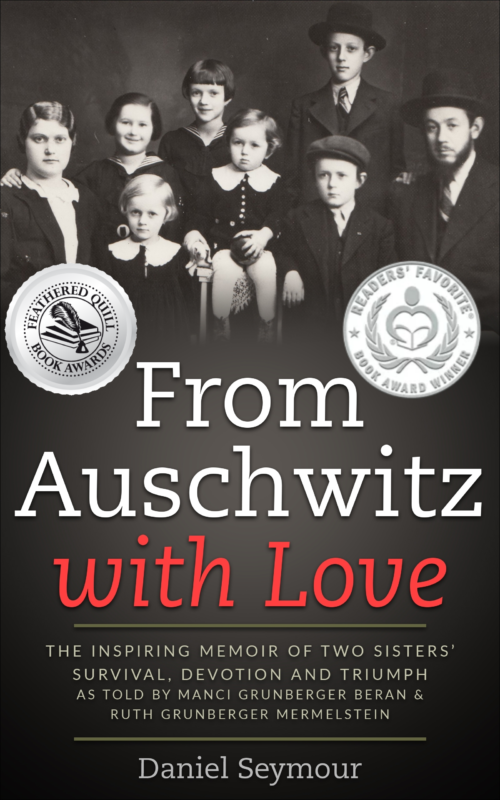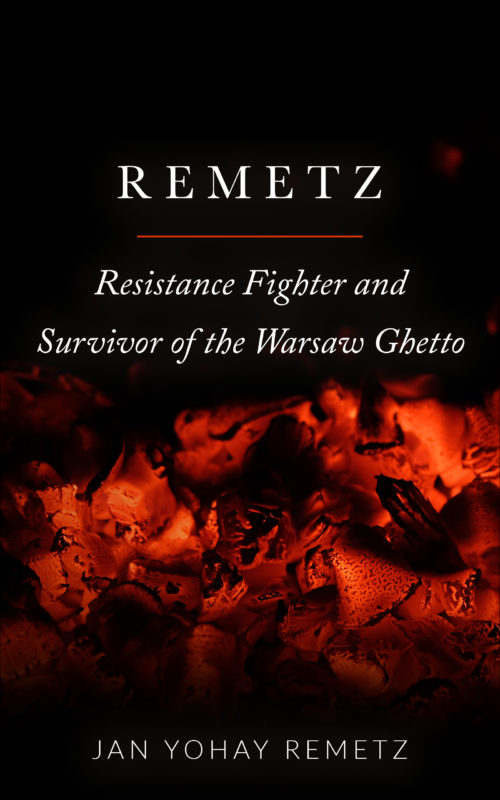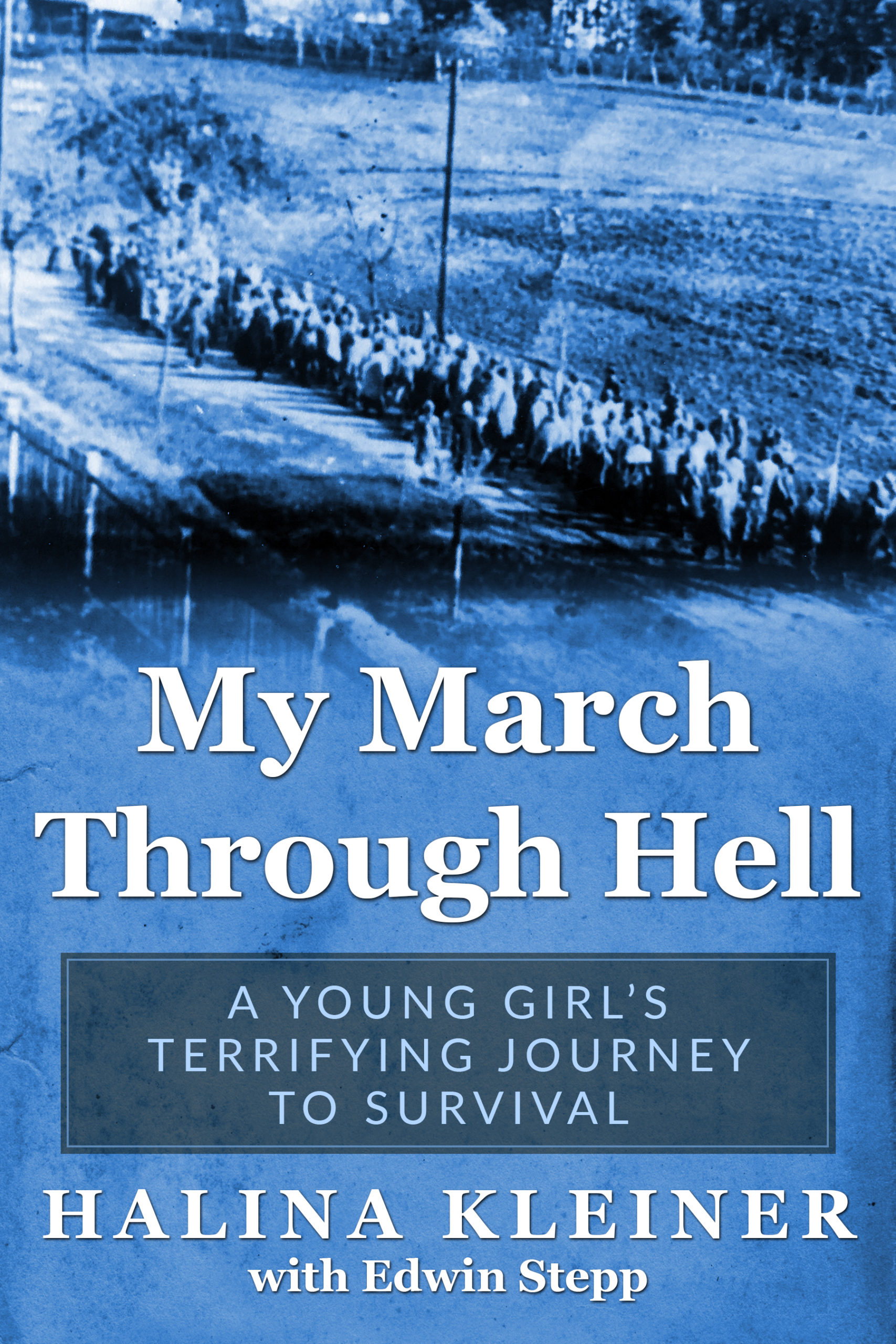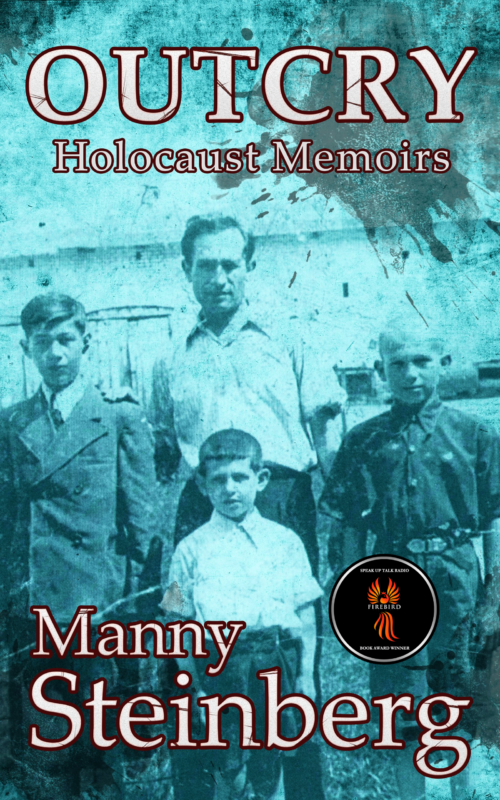
A brutally honest, award-winning, survivor story of human endurance in WW2
Outcry is an explicit Holocaust survivor story told through the eyes of an old man forcing himself to relive years of intense suffering.
Outcry Holocaust Memoirs has become a classic of Holocaust literature & human survival
Manny Steinberg spent his teens in Nazi camps in Germany and Poland, miraculously surviving while millions perished. This is his story.
Born in 1925 in the Jewish ghetto in Radom (Poland), Manny Steinberg soon realized that people of Jewish faith were increasingly being regarded as outsiders. When the Nazis invaded in September 1939 the nightmare started. The city’s Jewish population had no chance of escaping and was faced with starvation, torture, sexual abuse and ultimately deportation.
Outcry. Holocaust Memoirs is the candid account of a teenager who survived four Nazi camps: Dachau, Auschwitz, Vaihingen and Neckagerach. While being subjected to torture and degradation, he agonized over two haunting questions: “Why the Jews?” and “How can the world let this happen?” These questions remain hard to answer.
Outcry. Holocaust Memoirs touches the reader with its directness and simplicity
Manny’s brother Stanley had jumped off the cattle wagon on the way to the extermination camp where his mother and younger brother were to perish. Desperately lonely and hungry, Stanley stood outside the compound hoping to catch a glimpse of Manny and their father. Once he discovered that they were among the prisoners, he turned himself in. The days were marked by hunger, cold, hard labor, and fear. Knowing that other members of the family were in the same camp kept them alive. Since acknowledging each other would have meant death, they pretended to be complete strangers.
Outcry is an account of human cruelty, but also a testimony to the power of love and hope
The author relates how he was served human flesh and was forced to shave the heads of female corpses and pull out their teeth. Cherishing a picture of his beloved mother in his wooden shoe, he miraculously survived the terror of the German concentration camps together with his father and brother.
When the Americans arrived in April 1945, Manny was little more than a living skeleton, with several broken ribs and suffering from a serious lung condition, wearing only a dirty, ragged blanket.
Written to fulfill a promise Steinberg made to himself during his first days of freedom
By publishing these Holocaust memoirs, the author wants to ensure that the world never forgets what happened during WWII. The narrative is personal, unencumbered and direct.
Outcry. Holocaust Memoirs is one of Amsterdam Publishers’ bestselling and best Holocaust memoirs. Because the book strikes a chord with people all over the world, we decided to also publish the book in French, Chinese, Czech, Italian, French and German.
Outcry. Holocaust memoirs is featured on various Wikipedia pages. Anita Lavi, one of the two daughters, wrote a Holocaust story for children based on Outcry: Mendel.
Liesbeth Heenk interviewed Manny Steinberg – March 2015
Q: Liesbeth Heenk – Publisher
A: Manny Steinberg (Radom, Poland, 31 May 1925 – Los Angeles, 21 December 2015 )
When did you decide to write your memoirs?
As soon as I was liberated from the camps I knew I had to tell my story, but it took a long time before I actually wrote my story.
Why did you write your memoirs?
Once I was out of the camps, I was having a hard time relaying what I had gone through, and even having a difficult time personally processing my own experience. I had become withdrawn after all my years in the camps, and desperately needed to communicate. I was shocked to learn how many people in America knew nothing about what had happened. Once in America, I even experienced Jewish Americans did not believe me. This is one of the reasons why I thought it was important to tell my story.
How long did the process of writing take you? Tell us about the process.
It was a rather lengthy process, as you may well understand. It took me ten years to write, and I wrote a short piece every time. Generally, I wrote during the night when my kids were all asleep.
How did you find a publisher?
In 2007, I approached a small agency who agreed to publish my book in paperback. However, the company’s distribution of my book seemed … not to be a priority. As fate would have it, in 2014 I heard about another company “Amsterdam Publishers” located in the Netherlands and their success with Holocaust books. I sent an inquiry to the publisher and they promptly responded which has led to the overwhelming sales and distribution of “Outcry” through Amazon. Within a short period of time, our partnership has proven to be a mitzvah as my book skyrocketed and reached the bestseller list worldwide. If any survivors or anyone wants to publish their work I highly recommend this publisher; they will help you bring the work out of the woods into the world! [Thanks Manny!]
Would you recommend survivors to publish their memoirs?
I would recommend all survivors publish their memoirs. Not only does it help to educate people about the atrocities we endured, it helps the survivor to process the terrible memories. I’ve noticed that since my book is being read, I feel more and more open about talking about my experiences. So, yes, I recommend all survivors should tell their stories. Sadly, so many already passed away.
How come you are so forgiving? Considering your history it seems so amazing that you are not full of hatred.
It’s taken me many years to forgive. I’ve realized that I must try to let go of all these feelings that I built up over my years in the camps. When I forgive, it helps me to be at peace with myself, and with my family. When I hold feelings of hatred, my painful memories persist. I believe in forgiving, but not to forget.
What do you think of all the reviews the book is receiving? How does that make you feel?
I read each and every review. Frankly, I’m overwhelmed by the beautiful comments I see. I am touched by the fact that many hundreds of readers across the globe take the time to leave a review for the book. It makes me feel that people are truly hearing my story, and I’m so grateful for that. Finally I’m being heard.
What next?
It is wonderful to have the book published and appreciated by so many people. I have been approached by people who said Outcry would be perfect source material for a movie because it is such a dramatic -and above all- true story. This idea very much appeals to me. Although WWII is only recent history it is important that stories like mine keep being told. With a book one always reaches a limited audience, whereas a movie potentially has a much broader public. I find it important that the young generation knows what went on.
And of course, I would be very pleased if my book would be as widely available as possible. Currently it is being translated into German and Spanish, but I would love to have it available in all major languages.
California (USA) – The Netherlands, March 2015.
(End of Interview #1)

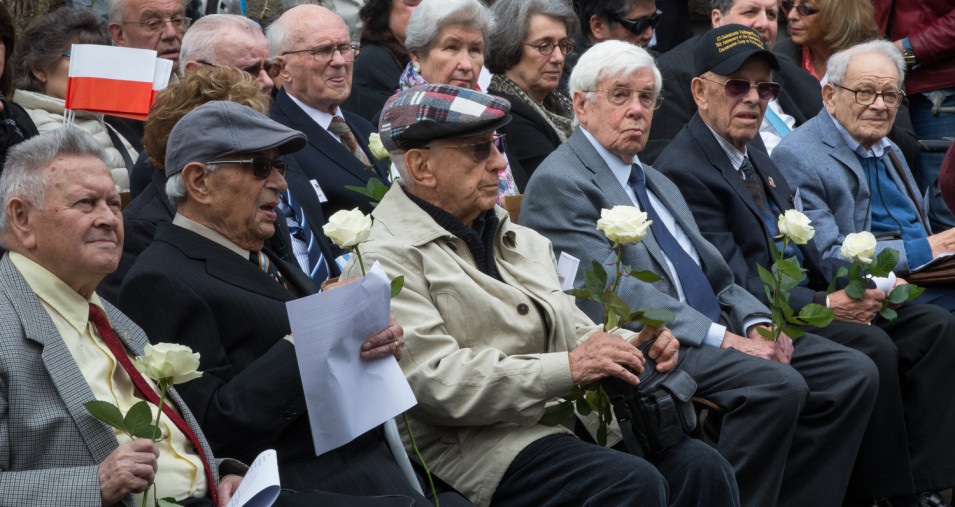
Liesbeth Heenk interviewed Manny Steinberg – April 2015
Manny Steinberg is the sole survivor of a large Jewish family from Radom (Poland). As a teenager he was taken to the camps together with his father, Chaim and younger brother Stanley. His stepmother Genia and younger brother Jacob were gassed upon arrival at Treblinka. As an almost 90 year old, he visited Germany for the first time since the liberation, accompanied by his family in April, 2015. Manny Steinberg was invited to join the 70-year commemoration of the liberation of KZ-Vaihingen/Enz in Germany. The seven other survivors were: Isaak Akerman from Israel, Eugeniusz Dabrowski from Poland, Jules Schelvis from The Netherlands, Boleslaw Urbański from Poland, Ted Weisbord from Florida, Jerzy Wojciewski from Poland and Ben Zysman from Connecticut.
I think it is very brave of you to return to Germany after all those years, and imagine it must have been difficult. I wonder whether this trip changed the way you view Germans?
To be honest, I did not like Germans nor wanted to buy any German products. You must understand, I never had any intention of stepping into the country that annihilated my family and tortured and imprisoned me for years. I could not bring myself to buy German products like BMW, Mercedes, Miele, Siemens or Bayer.
When the invitation came from the German City of Vaihingen/Enz to visit for the 70th anniversary, it was not a decision to attend that I made easily.
I thought about it for weeks, then asked my children, what they thought about going with me to Germany. They were concerned for my well being as I am 90 years old and not in the best health. However, they, Anita Lavi (daughter) and Gary Steinberg (son) as well as my grandson, Paul La Grassa, said: “If this is something you want to do, we will support your decision and go with you.”
You are now almost 90 years old, and have returned to Germany for the first time in 70 years. How does it feel?
I must admit, I was very nervous to return to Germany, but something in me kept urging me to pursue this journey; my family gave me strength to face this horrific and terrifying time that once happened in my life.
Upon our arrival in Vaihingen, I realized my fears were unwarranted as each person we met, greeted us with warmth, kindness and respect. Our first night, I lay in bed thinking and sorting out my feelings about this present day Germany and how much has changed.
The 4-day Commemoration program in Vaihingen/Enz has opened a closed door in my heart that I never thought possible; there is a new compassionate Germany.
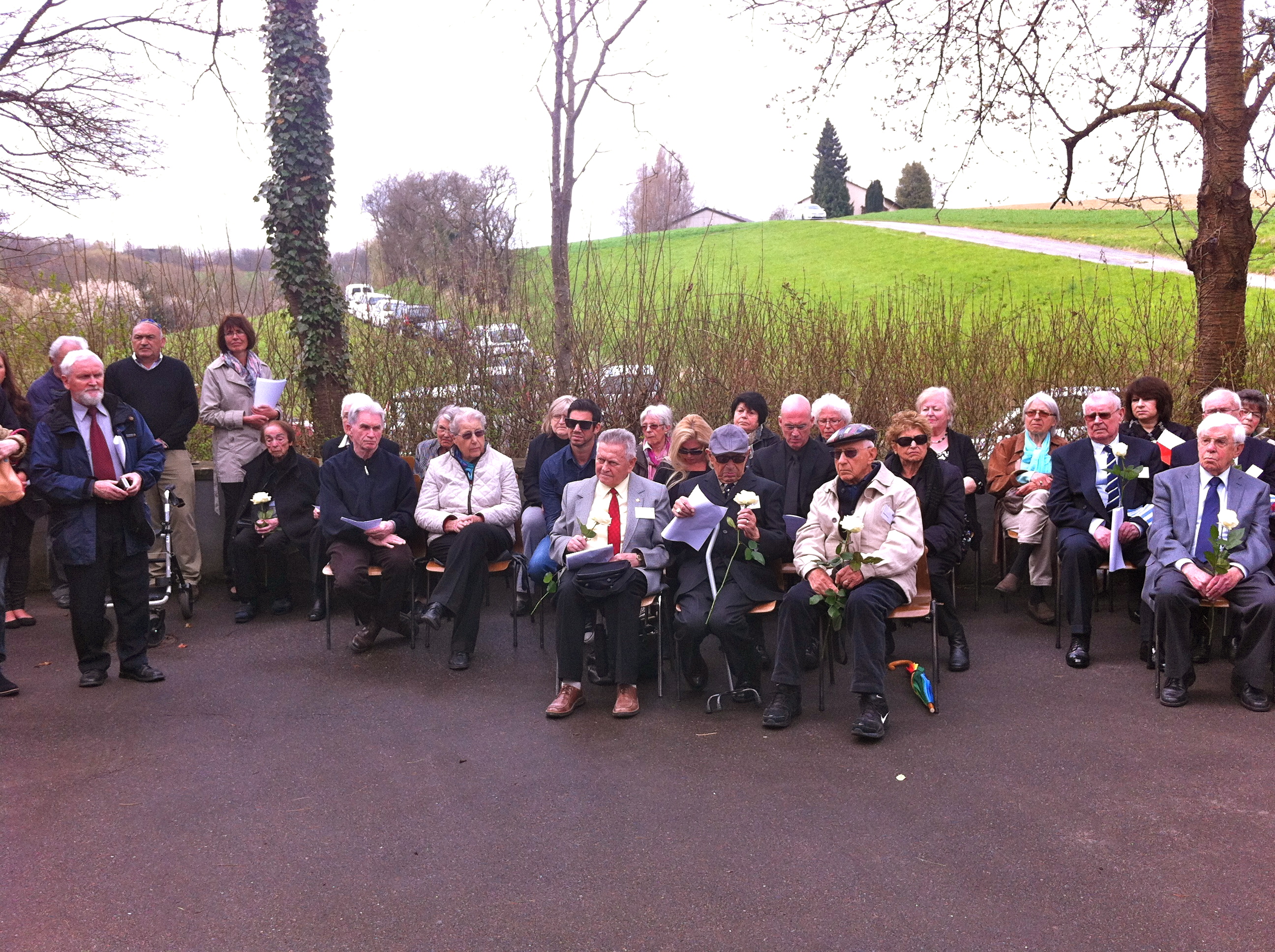
Seeing tears in the eyes of the students of the Stromberg Gymnasium where we (the survivors) talked about our experiences in the camp was moving. I explained that I was their age when I was sent to the camp. Why? We have the same chromosomes, we have the same desires and love of family; but simply because I had a different religion, my family and I were beaten and treated like animals.
I was touched by their tears and questions; a wall in my heart has been taken down and healing towards the German people has now begun.
Another reason for going to Vaihingen was to visit the cemetery where so many of my family members died. Being the sole survivor, I feel an obligation to pay my respect and visit the place where three of my father’s brothers are buried as well as many other relatives and friends. I still ask G-d, how it was possible that I survived? Going back was not easy, but ultimately, the right thing to do and very worthwhile.
I know I will never return here; once is enough. Too many bad memories that I prefer now to be laid to rest. Even the shower area at KZ-Vaihingen/Enz brought back vivid memories; it still smelled the same.
You also visited Dachau with your family; tell me how that affected you?
Most of my prison time was in other camps during the war; Dachau only a few days. All the camps looked the same; barbed wire, German guards with guns in towers and the enormous Appelplatz where we stood for hours on end waiting to be counted. I saw the bench on which my brother Stanley and I were beaten with a stick until we were barely alive and remembered the Germans singing Christmas songs while we were starving. It was difficult. When I saw the latrines I remember we were too afraid of using the bathrooms at night; the guards used us as targets so we would deficate and urinate in our straw bunks. There were two barracks left standing but the bunks were reconstructed and the grounds cleaner now. I was exhausted and emotionally drained by the end of the visit, but knew this was another step in closure and healing.
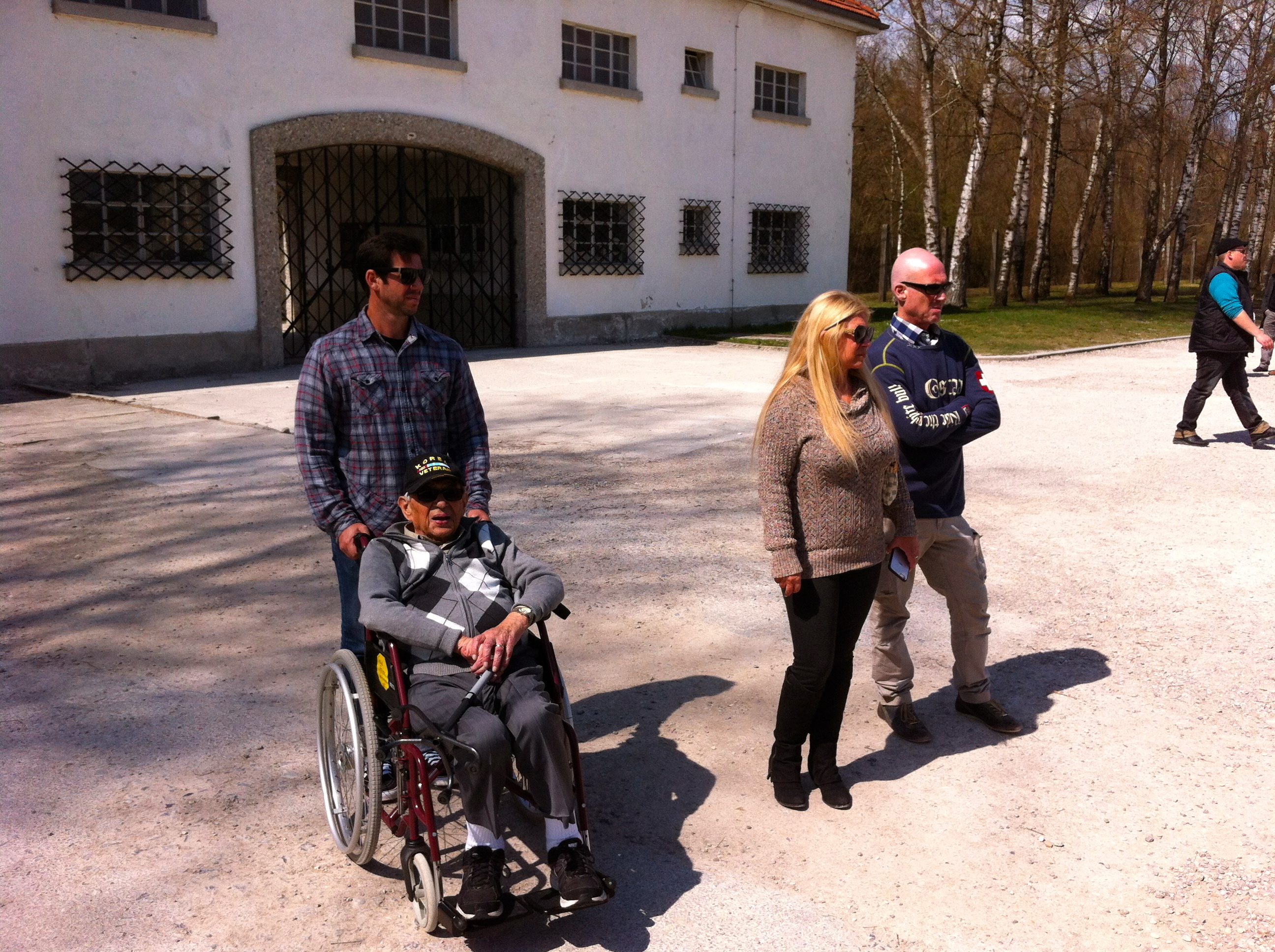
Jules Schelvis (1921-2016), who was with you in camp Vaihingen, told me that he started writing his memoirs straight away, when still recovering in hospital. You wrote down your life story some thirty years later.
I had a difficult time adjusting and communicating. Our lives were shattered and we had to start anew. I was lonely and hoped that serving in the American Army would give me a sense of belonging. I was reluctant to speak to my children about the horrors in the camps when they were young. I knew however, the only way to testify to what happened to me and all those others was to write it down; this was a long process. It is only until recently that I have a need to be heard. You have to understand, many people did not believe me when I told them about what had happened to me and my family.
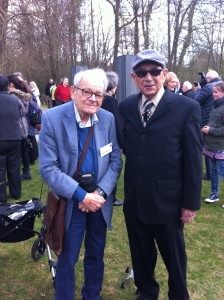
And now with your book Outcry Holocaut Memoirs what are some of your thoughts?
The many positive and heartfelt reviews that my book has received, makes me feel heard; people are acknowledging the atrocities and this means a great deal to me. I now want to talk to my family about those times so they will always remember what happened.
You were able to keep your mother’s picture with you during the six years in camps.
I loved my mother dearly. She was a beautiful and loving person. She died when my youngest brother Jacob was born. I had wooden shoes and the photo was in one of the shoes wrapped in paper. Although worn and creased, I have this picture still today.
When I read your story I think it is amazing that you managed to stay alive.
Food was important. We got so little of it. I did what I had to do in order to keep going. I tried always to be first in line for soup and also knowing that my brother and father were still alive was a great motivator for me to live. Perhaps because I was so young, I always had hope and trust in God that we would be saved and live to tell our story.
Vaihingen / Enz and Dachau, 13 April 2015.
(End of Interview #2 )
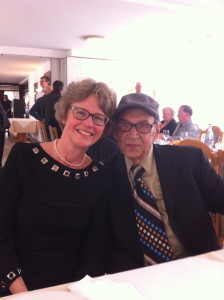
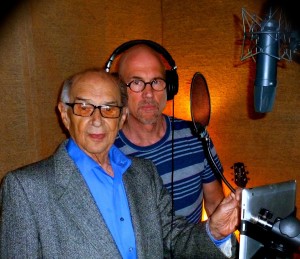
The audio is available on Amazon audible.
Outcry by Manny Steinberg in the press and on blogs:
Madderly Review (27 March 2015)
Bietigheimer Zeitung (11 April 2015)
Vaihinger Kreiszeitung (11 April 2015)
Bietigheimer Zeitung (13 April 2015)
Manny Steinberg in LKZeitung 13.04.15
Vaihinger Kreiszeitung (17 April 2015)
Lagraziana’s Kalliopeion (24 September 2015)
Obituary in LA Times (24-27 December 2015)
Press Release June 2016: Outcry: Holocaust Memoirs Hits #1 on Amazon Best Seller’s List

